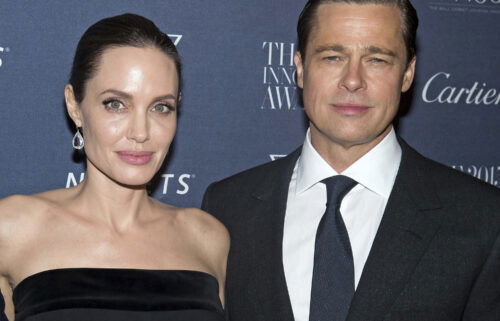Business briefs
By NewsPress Now
Brazil Supreme Court panel upholds decision to block X
RIO DE JANEIRO | A Brazilian Supreme Court panel on Monday unanimously upheld the decision of one of its justices to block billionaire Elon Musk’s social media platform X nationwide, according to the court’s website.
The broader support among justices undermines the effort by Musk and his supporters to cast Justice Alexandre de Moraes as an authoritarian renegade who is intent on censoring political speech in Brazil.
The panel that voted in a virtual session was comprised of five of the full bench’s 11 justices, including de Moraes, who last Friday ordered the platform blocked for refusing to name a local legal representative, as required by law. It will stay suspended until it complies with his orders and pays outstanding fines that as of last week exceeded $3 million, according to his decision.
The platform has clashed with de Moraes over its reluctance to block users, and has alleged that de Moraes wants an in-country legal representative so that Brazilian authorities can exert leverage over the company by having someone to arrest.
De Moraes also set a daily fine of 50,000 reais ($8,900) for people or companies using virtual private networks, or VPNs, to access X. Some legal experts questioned the grounds for that decision and how it would be enforced, including Brazil’s bar association, which said it would request the Supreme Court review that provision.
But the majority of the panel upheld the VPN fine — with one justice opposing unless users are shown to be using X to commit crimes.
Brazil is one of the biggest markets for X, with tens of millions of users. Its block marked a dramatic escalation in a monthslong feud between Musk and de Moraes over free speech, far-right accounts and misinformation.
Over the weekend, many X users in Brazil said they felt disconnected from the world and began migrating en masse to alternative platforms, like Bluesky and Threads.
The suspension has also proceeded to set up a showdown between de Moraes and Musk’s satellite internet provider Starlink, which is refusing to enforce the justice’s decision.
“He violated the constitution of Brazil repeatedly and egregiously, after swearing an oath to protect it,” Musk wrote in the hours before the vote, adding a flurry of insults and accusations in the wake of the panel’s vote. On Sunday, Musk announced the creation of an X account to publish the justice’s sealed decisions that he said would show they violated Brazilian law.
But legal experts have said such claims don’t hold water, noting in particular that de Moraes’ peers have repeatedly endorsed his rulings — as they did on Monday. Although his actions are viewed by experts as legal, they have sparked some debate over whether one man has been afforded too much power, or if his rulings should have more transparency.
De Moraes’ decision to quickly refer his order for panel approval served to obtain “collective, more institutional support that attempts to depersonalize the decision,” Conrado Hübner, a constitutional law expert at the University of Sao Paulo, told The Associated Press.
It is standard for a justice to refer such cases to a five-justice panel, Hübner said. In exceptional cases, the justice also could refer the case to the full bench for review. Had de Moraes done the latter, two justices who have questioned his decisions in the past — and were appointed by former right-wing President Jair Bolsonaro — would have had the opportunity to object or hinder the vote’s advance.
X’s block already led de Moraes last week to freeze the Brazilian financial assets of Starlink as a means to force it to cover X’s fines, reasoning that the two companies are part of the same economic group. The company says it has more than 250,000 clients in Brazil.
Legal experts have questioned the legal basis of that move, and Starlink’s law firm Veirano has told the AP it has appealed the freeze. It declined to comment further.
In a show of defiance, Starlink informally told the telecommunications regulator Anatel that it will not block X access until its financial accounts are unfrozen, Anatel’s press office said in an email to the AP. Starlink didn’t respond to a request for comment.
“If I’m not mistaken, it was a WhatsApp message that the legal representative of Starlink sent to the president of Anatel, forwarding a message from the company in the United States,” said Arthur Coimbra, a board member of Anatel, on a video call from his office in Brasilia.
That communication doesn’t hold legal value as conclusive evidence of non-compliance but prompted the telecommunications regulator to conduct inspections on Monday.
Coimbra said Anatel would finish an inspection report by the end of the day and then send it to the Supreme Court. He added that the maximum sanction for a telecom company would be revocation of its license. If Starlink loses its license and continues providing service, it would be committing a crime. Anatel could seize equipment from Starlink’s ground stations in Brazil that ensure the quality of its internet service, he said.
The ground stations receive and transmit data between satellites and the Earth. When a user accesses the internet via satellite, the data request is sent to the satellite, which then forwards it to the ground station connected to the global internet network.
That means a shutdown of Starlink is likely, although enforcement will be difficult given the company’s satellites aren’t inside national territory, said Luca Belli, coordinator of the Technology and Society Center at the Getulio Vargas Foundation. It is popular in Brazil’s expansive rural and forested areas.
Anatel’s President Carlos Baigorri told local media GloboNews late Sunday afternoon that he has relayed Starlink’s decision to Justice de Moraes.
“It is highly probable there is a political escalation,” because Starlink is “explicitly refusing to comply with orders, national laws,” said Belli, who is also a professor at the Getulio Vargas Foundation’s law school.
The arguments from Musk, a self-proclaimed “free-speech absolutist,” have found fertile ground with Brazil’s political right, who view de Moraes’ actions as political persecution against Bolsonaro’s supporters.
On Brazilian orders, X previously has shut down accounts including of lawmakers affiliated with Bolsonaro’s right-wing party and far-right activists accused of undermining Brazilian democracy. X’s lawyers in April sent a document to the Supreme Court, saying that since 2019 it had suspended or blocked 226 users.
Bolsonaro and his allies have cheered on Musk for defying de Moraes. Supporters rallied in April along Rio de Janeiro’s Copacabana beach with a giant sign reading “Brazil Thanks Elon Musk.”
Earlier that month, de Moraes ordered an investigation into Musk over the dissemination of defamatory fake news and another probe over possible obstruction, incitement and criminal organization.
Bolsonaro is also the target of a de Moraes probe over whether the former president had a role in inciting an attempted coup to overturn the results of the 2022 election that he lost.
Former Volkswagen
boss Winterkorn goes on trial
FRANKFURT, Germany | Former Volkswagen Group CEO Martin Winterkorn went on trial Tuesday on charges of fraud and market manipulation in connection with the corporate scandal over Volkswagen’s use of rigged software that let millions of cars cheat on emissions tests and emit high levels of harmful pollutants.
Prosecutors say Winterkorn knew about the illegal software well before the U.S. Environmental Protection Agency announced its discovery of the violation in September 2015. He resigned days later.
He has said he learned about the practice only shortly before the announcement and earlier testified during civil proceedings that the allegations against him “are not correct.”
Winterkorn’s attorney, Felix Doerr, said ahead of court proceedings in Braunschweig on Tuesday that “our client definitively rejects the accusations brought against him.” He said that Winterkorn’s position as CEO was not justification to make him responsible for the scandal in all its aspects.
Winterkorn, 77, was scheduled to go on trial in 2021 with four other VW executives but his case was postponed due to health issues.
The diesel scandal had wide-ranging consequences for the company and the auto industry. Volkswagen wound up paying more than 31 billion euros ($34 billion) in fines and legal settlements. Sales of diesel-powered cars, once favored for their fuel efficiency over gasoline-powered vehicles, plunged as a share of the car market in Europe.
Winterkorn faces three separate sets of charges: defrauding auto purchasers by selling the cars with illegal software, stock-market manipulation by not revealing required information to investors, and making false statements before a parliamentary commission of inquiry in 2017. He face up to 10 years in prison if convicted.
Court sessions are scheduled through September 2025 in the complex case. The fraud indictment alone stretched to 692 pages including the other four defendants, while the case file consists of 300 volumes with 75,000 pages of supporting documents.
Prosecutors alleged in their indictment that Winterkorn learned of the issue at least by May 2014, but continued to permit the practice and allowed rigged cars to be sold. They say that the software appeared in Volkswagen cars in Europe and the U.S. as early as 2006.
The software turned up emissions controls during testing, then turned them down during everyday driving, allowing the cars to emit more than the permitted levels of nitrogen oxide. Nitrogen oxide can irritate people’s airways and contribute to the development of asthma.
Clearview AI fined $33.7 million by Dutch data protection watchdog
THE HAGUE, Netherlands | The Dutch data protection watchdog on Tuesday issued facial recognition startup Clearview AI with a fine of 30.5 million euros ($33.7 million) over its creation of what the agency called an “illegal database” of billion of photos of faces.
The Netherlands’ Data Protection Agency, or DPA, also warned Dutch companies that using Clearview’s services is also banned.
The data agency said that New York-based Clearview “has not objected to this decision and is therefore unable to appeal against the fine.”
But in a statement emailed to The Associated Press, Clearview’s chief legal officer, Jack Mulcaire, said that the decision is “unlawful, devoid of due process and is unenforceable.”
The Dutch agency said that building the database and insufficiently informing people whose images appear in the database amounted to serious breaches of the European Union’s General Data Protection Regulation, or GDPR.
“Facial recognition is a highly intrusive technology, that you cannot simply unleash on anyone in the world,” DPA chairman Aleid Wolfsen said in a statement.
“If there is a photo of you on the Internet — and doesn’t that apply to all of us? — then you can end up in the database of Clearview and be tracked. This is not a doom scenario from a scary film. Nor is it something that could only be done in China,” he said.
DPA said that if Clearview doesn’t halt the breaches of the regulation, it faces noncompliance penalties of up to 5.1 million euros ($5.6 million) on top of the fine.
Mulcaire said in his statement that Clearview doesn’t fall under EU data protection regulations.
“Clearview AI does not have a place of business in the Netherlands or the EU, it does not have any customers in the Netherlands or the EU, and does not undertake any activities that would otherwise mean it is subject to the GDPR,” he said.
In June, Clearview reached a settlement in an Illinois lawsuit alleging its massive photographic collection of faces violated the subjects’ privacy rights, a deal that attorneys estimate could be worth more than $50 million. Clearview didn’t admit any liability as part of the settlement agreement.
The case in Illinois consolidated lawsuits from around the U.S. filed against Clearview, which pulled photos from social media and elsewhere on the internet to create a database that it sold to businesses, individuals and government entities.
—From AP reports



